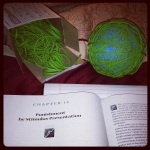As someone who recently passed the BCBA exam. It’s my duty to give back to the field. There are many tips out there, but I wanted to share what worked for me (or at least I engaged in) as I prepared to sit for the test.
BDS (Behavior Development Solutions) Modules: Yes I’m referring to those modules everyone keeps talking about on Facebook, Twitter, and the like. I highly recommend going through their training modules. The format of the modules emulates the testing environment very well. I focused on the acquisition modules more than the fluency modules. For me, knowing the content well was more important than fluency. When it came to fluency, I found that I was rushing and memorizing (it’s easy to get caught in that trap if you’re not careful. When I read questions, I immediately read the hint if I could not come to a reasonable answer. If and when I did make an error (I wasn’t completely errorless), I made sure to go through my errors at the end of each module to see where I made a mistake. It was important to understand why I made the error and why the correct answer was indeed the correct answer. At first I dedicated an hour at time a few times a week. A month or so prior to testing time I was on there probably 2 hours a day. The week before testing I was reviewing the modules 3-4 hours a night.
The White Book: Cooper, Heron, and Howard. Applied Behavior  Analysis (2nd Edition): I carried this book with me everywhere. It was always in my bag for quick reference. It was the basis of my graduate coursework and continued to be my go to source as I studied for the exam. I found that I would refer to this book often. I also went to the book’s website and downloaded the guided notes. I found the guided notes to be useful in organizing the book chapters for me.
Analysis (2nd Edition): I carried this book with me everywhere. It was always in my bag for quick reference. It was the basis of my graduate coursework and continued to be my go to source as I studied for the exam. I found that I would refer to this book often. I also went to the book’s website and downloaded the guided notes. I found the guided notes to be useful in organizing the book chapters for me.
Ethics for Behavior Analysts by Bailey and Burch. Trust me, you can’t go wrong with learning about ethics, and this is the book for it.
SAFMEDS: “Say All Fast Minute Every Day Shuffle”. I learned this in my very first Behavior Analysis Course with Dr. Rosales at UNT. I had so many index cards laying around that my wife was giving me “the look”. Whenever she found a stack around the house. You can take them anywhere and study your terminology. I kept envelopes of SAFMEDS in my backpack and I would study while waiting for meetings, kid’s plays, during television commercials. I did not maintain data on myself or my performance using them. But it was an activity that kept me accessing and using terminology which was helpful. If you need more information on SAFMEDS check out Dr. Amanda Kelly’s website, behaviorbabe.com. Excellent resource!
Have FUN: I enjoy finding ways to make learning fun, and applicable to my world. I know I probably drove my family and friends a little crazy because I kept wanting to explain events and situations in behavioral terminology. But when I explained why I was doing it, after awhile they began to appease me. I created this blog for example as a way for me to translate what I was learning into language I could understand, as well as others. Creating visuals that demonstrate or explained the concepts. Google “behavior analysis memes” and you’ll find many out there. Also Pinterest has plenty of Behavior Analysts sharing their humor, give it a look. Twitter conversations are great as well. On this blog I have posted several transcripts from previous #ABAchat conversations I’ve participated in.
Global Autism Project Webinar: I participated in the GAP’s free “Prepare to Pass the BCBA Exam” webinar about a year ago. I found it useful in that it gave some simple test taking tips and studying suggestions.
Explore the field: Early on I found that immersing myself in behavior analysis was very helpful. Find ways to associate behavior analytic principles into day to day activities. Learn about the various applications of the field. Explore fields such as sports performance, organization behavior management to name a couple. You get a different perspective and learn concepts because you see how they are applied in varying contexts.
Test when you are ready! Just because you registered to take the test doesn’t mean you can’t cancel. When I first registered back in August, I knew I was not ready. I decided to cancel my seat and got my money back. It was one of the best decisions I could’ve made. Why go in with test anxiety when you can make sure you’re prepared.
Again, this is what worked for me. Hopefully you’re able to find something in these tips that will be useful for you. Most importantly………
Sit back, kick off your shoes and you relax, you got this!
~Eric



